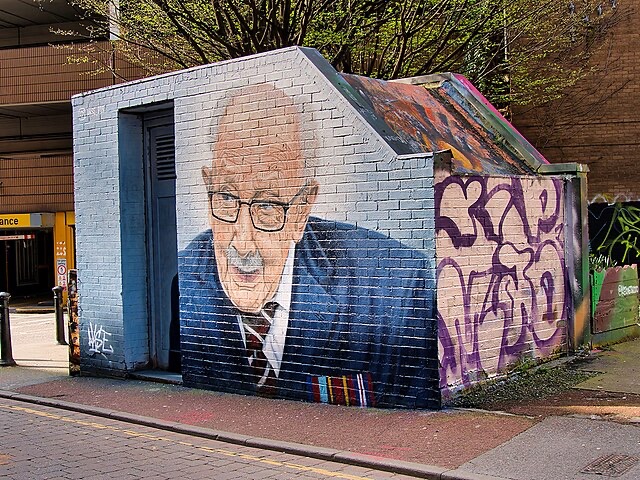The family of the late Captain Sir Tom Moore, the beloved WWII veteran who inspired millions during the COVID-19 pandemic, is facing a major public and legal backlash after being implicated in a damning report by the UK Charity Commission. The investigation revealed multiple instances where the Captain Tom Foundation, created to honor his charitable legacy, was allegedly mismanaged and exploited for personal gain by his daughter, Hannah Ingram-Moore, and her husband, Colin Ingram-Moore.
The foundation, once celebrated as a symbol of hope and unity, is now mired in controversy. The findings have led to Hannah and Colin being disqualified from charity roles and have reignited public debates about accountability and transparency in the nonprofit sector.
Read the full report summary on The Guardian.
The Legacy of Captain Sir Tom Moore
National Hero During COVID-19
Captain Tom Moore became a household name in 2020 after walking 100 laps in his garden at the age of 99 to raise funds for NHS Charities Together. His humble campaign went viral, ultimately raising nearly £39 million and earning him a knighthood, a Pride of Britain award, and international admiration.
Creation of the Captain Tom Foundation
Following his fundraising success, the Captain Tom Foundation was launched in June 2020 to continue his philanthropic mission. It aimed to support causes close to his heart, including mental health services, elder care, and educational access. However, the organization’s reputation has since taken a serious hit.
The Charity Commission’s Investigation
Timeline and Purpose of the Inquiry
The Charity Commission began its inquiry after concerns were raised about the financial transparency of the foundation and potential conflicts of interest. The probe focused on whether funds were being used appropriately and whether trustees had misled the public about their involvement.
The full findings were published in late 2024 and detailed a series of governance failures and inappropriate financial benefits to the Ingram-Moore family.
Read the official summary on the UK Government website.
Findings from the Report
The report highlighted multiple red flags, including:
- Improper financial transactions
- Lack of oversight in decision-making
- Mixing of personal and charitable branding
The Charity Commission concluded that the family had “repeatedly failed to act in the foundation’s best interests.”
Personal Profits from the Foundation
The £1.5 Million Book Deal Controversy
One of the most serious accusations involves a three-book deal signed with Penguin Books, purportedly in Captain Tom’s name. While the public believed proceeds would benefit the foundation, the money was instead directed into a family-owned company, with no donations made to the charity.
More details are available in the full coverage by The Guardian.
Payments for Awards Judging and Events
Another troubling instance involved £18,000 paid to Hannah Ingram-Moore for judging the “Virgin Media O2 Captain Tom Foundation Connector Awards.” While she claimed this was personal work, the Commission found the branding and association too closely tied to the foundation to justify such payments.
Private Building Project Using Charity Branding
Perhaps the most bizarre misuse came in the form of a spa and pool complex built on the family’s property, which was approved by citing the Captain Tom Foundation in its planning documents. The structure was later ordered to be demolished after it was revealed that the final build bore no resemblance to the plans submitted.
Consequences for Hannah and Colin Ingram-Moore
Disqualification from Charity Roles
The Charity Commission has officially disqualified both Hannah and Colin Ingram-Moore from serving as charity trustees. Hannah is banned for 10 years, and Colin for 8 years, marking a significant fall from grace.
The decision is backed by public outrage, with many calling for criminal investigations or further civil action.
See the disqualification notice and related developments on AP News.
Public and Media Backlash
The reaction has been swift and severe. Social media platforms have been flooded with criticism, with many expressing anger at the apparent betrayal of trust. Prominent charities and watchdog groups have used the scandal to call for stricter regulations in the charity sector.



